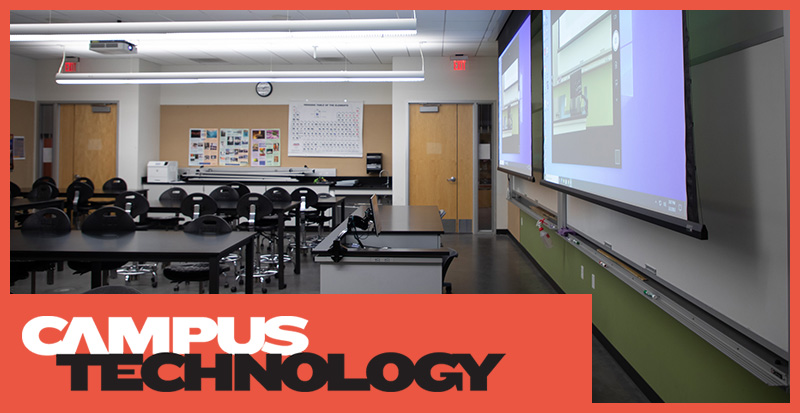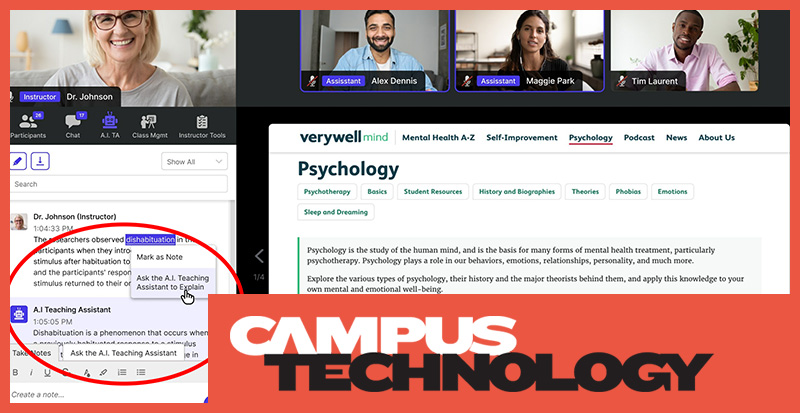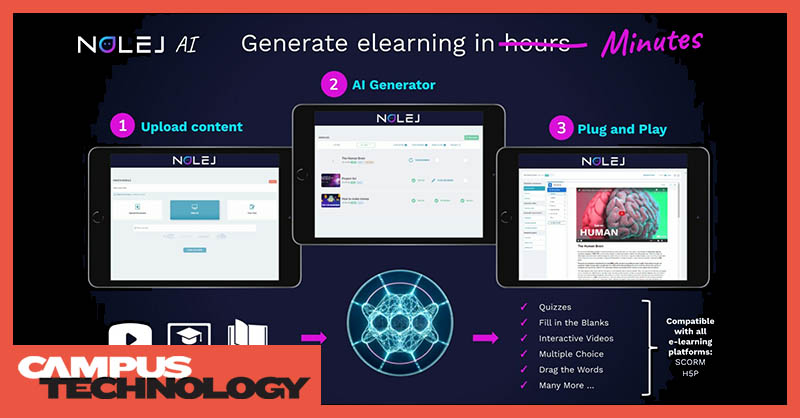
With today's advancements in generative AI, the dream of ultra-personalized learning may not be far off from reality. We spoke with Dr. Kim Round, associate dean of the Western Governors University School of Education, about the potential of technologies like ChatGPT for learning, the need for AI literacy skills, why learning experience designers have a leg up on AI prompt engineering, and more.
Ed tech company Echo360 recently introduced EchoPoll, a new learning engagement platform, and is also enhancing its EchoVideo and ExamView platforms.

Open source learning management system Moodle has formed a partnership with AI content and plagiarism detector Copyleaks. With thousands of education institutions using Moodle's LMS, custom development, and learning design services, and the explosive use of AI-generated content, Moodle said in a release that feedback from its clients cemented its move to incorporate an AI detection tool.

Arizona's Mesa Community College is renovating its classroom audio systems with a variety of solutions from conferencing, collaboration, and streaming technology provider ClearOne. The goal: to "enhance the flexibility and quality of remote learning experiences" for the institution's 20,000 students, according to a news announcement.

At its 11th annual conference in 2023, educational company Coursera announced it is adding ChatGPT-powered interactive ed tech tools to its learning platform, including a generative AI coach for students and an AI course-building tool for teachers.

Class Technologies has announced plans for a beta release of A.I. Teaching Assistant, a ChatGPT-powered tool designed to improve learner engagement and outcomes in live online courses.

Plagiarism detection software Turnitin now includes new live AI-writing detection features that “identify the use of AI writing tools including ChatGPT, with 98% confidence,” the company said.

A French generative AI ed tech startup called Nolej (pronounced “knowledge”) has made publicly available its new OpenAI-based instructional content generator for educators, called Nolej AI, ahead of its official introduction at BETT in London planned for Thursday, March 30, and its scheduled commercial debut at the ASU+GSV Summit on April 19, the company's chairman told Campus Technology.

The use of AI for writing and communication presents an inherent contradiction: Those who can best write with AI will be those who can best write without it, according to Mark Warschauer professor of education and informatics at the University of California, Irvine, and founder of UCI's Digital Learning Lab. We talked about the potential of AI for teaching and learning, overcoming faculty skepticism about AI tools, research questions that should be asked about AI in education, and more.

Expanded multi-modal MathGPT Platform possibilities mean any math content or curriculum can be turned into a personalized GPT-powered chatbot with interactive text, audio, and video learning, and GotIt can configure the platform to work with a wide variety of applications in math education, the company said.